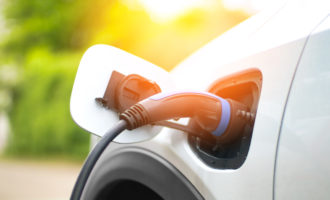UPDATE 19/02/2024: Since HMRC announced its plans to change the way that double cab pickups (with a payload of 1 tonne or more) would be classed as a car for benefit-in-kind purposes we have received a number of enquiries. HMRC has listened to the feedback from farmers and the motoring industry about the potential impact of the change in tax treatment and has made a U-turn on their announcement, meaning that these vehicles will continue to be classed as commercial vehicles.
The surge in popularity of double cab pickup trucks in recent years can be attributed to their versatility, serving as great work and personal vehicles. Many individuals have been drawn to these vehicles not only for their practicality but also for the tax advantages they offer.
Whether a double cab is a commercial vehicle (can reclaim VAT) or a ‘car’ (usually no VAT claim) is one of the VAT questions we see most often. Many companies with double cabs on the books reclaim VAT incorrectly (or don’t reclaim VAT when they could) and so we always recommend obtaining professional VAT advice if your business owns any double cab vehicles.
Although the VAT rules are remaining the same, HM Revenue and Customs (HMRC) announced on 12 February that from 1 July 2024, the tax treatment of double cab pickups is changing. Sam Stent, Associate Tax Partner explores these changes and suggests what action employers might wish to take as a result of the new rules.
Until now, double cabs with a payload exceeding one tonne have been classified as vans (and not cars), and subject to lower, flat-rate benefit in kind (BIK) charges. Moving forward however, HMRC will evaluate the classification of each double cab pickup on a case-by-case basis. Under the new rules, the majority, if not all double cab vehicles will be categorised as cars for BIK purposes because of their suitability for transporting both goods and passengers.
As a result, employees driving one of these pickups will see a huge increase in the amount of BIKs included on their P11D as many of these vehicles (eg the popular Ford Ranger) will fall into the highest company car tax bracket of 37 percent due to their CO2 emissions.
According to Professional Pickup, from July 2024, a higher-rate taxpayer using a Ford Ranger Wildtrak 2.0 as a company car would see the tax payable in respect of their company vehicle more than quadruple from £1,584 per year to a whopping £6,960. This will render double cab pickups economically unviable for many.
The change in the rules will also have a significant impact on capital allowance claims – double cabs purchased on or after 1 July 2024 will be treated as cars and go in the special 6% WDA pool; they will no longer be eligible for 100% AIAs. These changes will undoubtedly dampen demand for these vehicles in future.
Fortunately, the current rules will continue to apply to any double cab pickups that are on the company’s books (or have been ordered) as at 30 June 2024. It’s important to note that single cab pickups remain unaffected by these changes.
These transitional arrangements allow employers to continue applying the current BIK and capital allowances treatment until such time as their existing vehicles are sold (or the lease expires or is surrendered), or 5 April 2028, whichever comes first.
HMRC has provided the following examples to illustrate the application of the transitional arrangements:
Example 1: Employer A purchased a double cab pickup on 14 September 2024. As the purchase occurred after 1 July 2024, the vehicle is classified as a car for tax purposes, resulting in a car benefit charge.
Example 2: Employer B leased a double cab pickup on 10 April 2024. Since the lease was initiated before 1 July 2024, the previous rules apply until the lease expires or 5 April 2028, whichever comes earlier.
Example 3: Employer C purchased a double cab pickup on 10 July 2023 and subsequently traded it in for another double cab pickup on 1 November 2024. The previous rules apply to the first vehicle until the trade-in point. However, the new pickup, acquired after 1 July 2024, is treated as a car for tax purposes.
Example 4: Employer D placed an order for a double cab pickup on 5 January 2024 but received it on 2 September 2024. Since the agreement was made before 1 July 2024, the previous rules apply until disposal, lease expiry, or 5 April 2028.
In view of these forthcoming changes, some employers with older double cab pickups might want to buy or lease a replacement vehicle (or put in an order for one!) within the next few months so that they can continue to benefit from the ‘old’ rules and the van BIK rates until 2028.
For other companies, this may be an ideal time to consider whether they should be offering car allowances to employees instead of providing them with company cars or vans.
To discuss these changes or to obtain bespoke advice in relation to your business’s company car arrangements, email us at hello@scruttonbland.co.uk or call 0330 058 6559.







